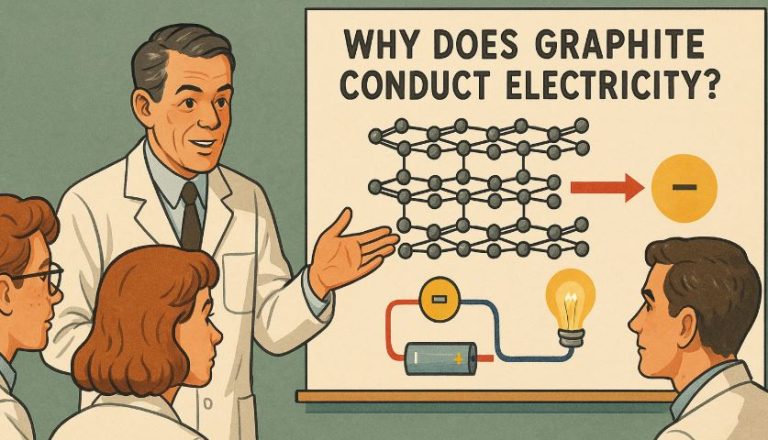Why Am I Not Losing Weight in a Calorie Deficit? – 15 Common Reasons
You’re tracking your calories, staying within your limit, and doing everything “right”, yet the scale isn’t budging. Frustrating, right? This is a common concern many people face when they embark on a weight loss journey.
While a calorie deficit should, in theory, lead to fat loss, there are many factors that can interfere with progress.
From miscalculations in tracking to hormonal imbalances and stress, understanding the real reasons behind your weight loss plateau is key.
This blog will guide you through what a calorie deficit actually is, how to track it accurately, and the top reasons you’re not seeing results. We’ll also provide solutions to get your weight loss back on track.
What Is a Calorie Deficit?
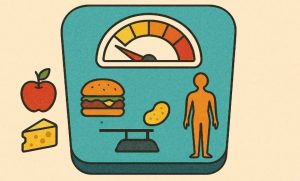
A calorie deficit occurs when you consume fewer calories than your body needs to maintain its current weight. This energy shortfall forces the body to draw on stored fat to meet its energy needs, leading to weight loss over time.
It’s the foundation of all fat loss, no matter the diet approach whether low-carb, intermittent fasting, or portion control. But being in a calorie deficit doesn’t automatically guarantee visible results on the scale.
Many factors can mask or slow progress, such as water retention or increased muscle mass. To lose one pound of fat, you need a deficit of approximately 3,500 calories.
However, it’s rarely this straightforward. The body is complex, and responses to deficits vary from person to person. That’s why understanding how a deficit works and what could interfere with it is essential.
What Does Being in a Calorie Deficit Actually Mean?
Being in a calorie deficit simply means your body is using more energy than it’s receiving from food and drink.
This energy imbalance leads the body to access its fat reserves for fuel, which results in weight loss. However, it’s important to know that the body also adapts by slowing down metabolic processes if the deficit is too extreme or prolonged.
That’s why a small, sustainable deficit is generally more effective. A deficit doesn’t need to be severe it just needs to be consistent.
Proper tracking, patience, and a holistic approach are crucial to ensure your efforts lead to genuine fat loss, not just fluctuations in water weight or muscle mass.
How Many Calories Should I Eat a Day?

Your daily calorie needs depend on factors such as age, sex, body composition, activity level, and overall health.
The best way to estimate your calorie requirements is by calculating your Basal Metabolic Rate (BMR) and Total Daily Energy Expenditure (TDEE).
BMR represents the calories your body burns at rest, while TDEE includes activity and exercise levels. On average, women need around 1,800–2,200 calories per day to maintain weight, while men require 2,200–2,800.
To lose weight, a moderate calorie deficit of 300–500 calories per day is recommended for safe and sustainable progress. Extreme deficits can lead to muscle loss, fatigue, and hormonal imbalances.
| Factor | Calories Needed (Daily) |
| Women (Maintenance) | 1,800 – 2,200 kcal |
| Men (Maintenance) | 2,200 – 2,800 kcal |
| Weight Loss Deficit | Reduce by 300–500 kcal |
Beyond quantity, food quality is essential. A well-balanced diet with adequate protein, healthy fats, and fiber promotes satiety, making it easier to stick to your calorie goals. Maintaining a nutrient-rich diet supports overall health while managing weight effectively.
How to Track a Calorie Deficit Accurately?
Tracking a calorie deficit requires precision and consistency. Many people miscalculate their intake and expenditure, leading to stalled progress.
Essential Tips for Accurate Tracking:
- Use a digital food scale daily: Weighing food is far more precise than using measuring cups or estimating portion sizes.
- Log everything you consume daily: Snacks, drinks, oils, and condiments count. Small extras can quickly add up and affect your deficit.
- Use a reliable tracking app always: Apps like MyFitnessPal, Lose It!, or Cronometer help track intake accurately and identify patterns.
- Scan labels for hidden calories: Packaged foods often contain hidden sugars and fats, making it crucial to check nutrition labels.
- Be consistent with daily logging: Skipping meal logs or missing days can lead to inaccurate weekly averages.
- Track exercise separately with caution: Smartwatches often overestimate calorie burn, so avoid relying on them alone.
Calorie tracking isn’t just about daily numbers—it’s about long-term trends. Regular monitoring ensures a more accurate and realistic approach to weight management.
Why Am I Not Losing Weight in a Calorie Deficit?
1. Inaccurate Calorie Tracking
![]()
Many people believe they are in a calorie deficit when, in reality, they are consuming more calories than they think.
This miscalculation can occur due to inaccurate portion estimations, forgetting to log small snacks, or not accounting for ingredients like cooking oils, sauces, and condiments.
Additionally, restaurant meals, packaged foods, and homemade dishes often contain hidden calories that are difficult to measure precisely. Even if you are tracking, small miscalculations each day can add up over time, preventing weight loss.
How to Fix it?
- Use a food scale to measure portions accurately instead of estimating.
- Track everything you eat, including beverages and small snacks.
- Use a reliable calorie-tracking app like MyFitnessPal or Cronometer to log your intake properly.
2. Overestimating Calorie Burn From Exercise
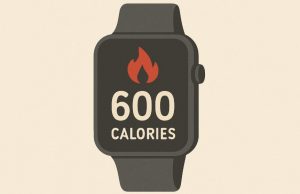
Exercise is essential for overall health, but many people overestimate how many calories they burn during workouts.
Fitness trackers, smartwatches, and even gym equipment often provide exaggerated calorie expenditure estimates, leading individuals to believe they can eat more than they should.
Additionally, after an intense workout, some people feel hungrier and unknowingly consume more calories, negating the calorie deficit they initially created.
How to Fix it?
- Avoid relying solely on exercise for weight loss; focus on diet first.
- Use conservative estimates for calorie burn, as trackers can be inaccurate.
- Refrain from “eating back” all exercise calories unless you have a very high activity level.
3. Hidden Liquid Calories
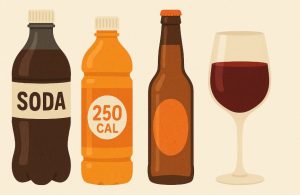
Many people focus only on solid food when tracking calories and forget about beverages, which can significantly impact weight loss.
Drinks like sodas, fruit juices, sugary coffee, energy drinks, milkshakes, alcohol, and even some “healthy” smoothies contain high amounts of sugar and calories without providing much satiety.
Since liquid calories do not fill you up the same way solid foods do, you may end up consuming excess calories without realizing it.
How to Fix it?
- Stick to water, unsweetened tea, or black coffee instead of sugary drinks.
- If consuming alcohol, choose lower-calorie options like spirits with soda water instead of sugary cocktails or beer.
- Track all liquid calories just as you would with solid food.
4. Inconsistent Eating Habits
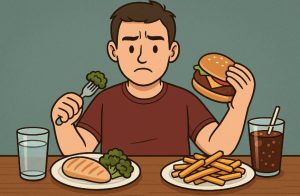
Some people maintain a strict diet during weekdays but indulge in high-calorie foods on weekends, unknowingly negating their weekly calorie deficit.
Social events, dining out, alcohol, and “cheat meals” can lead to a calorie surplus, preventing weight loss. Additionally, inconsistent meal patterns such as skipping meals and then overeating later can disrupt hunger signals and lead to poor food choices.
How to Fix it?
- Keep track of weekly calorie intake instead of just daily goals.
- Be mindful of social eating and portion sizes at restaurants.
- Maintain a sustainable eating routine instead of being too strict during the week and overly indulgent on weekends.
5. Not Enough Protein
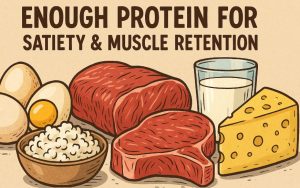
Protein is crucial for weight loss because it increases satiety, supports muscle retention, and has a higher thermic effect than fats and carbohydrates, meaning your body burns more calories digesting it.
If you’re not eating enough protein, you may feel hungrier and be more likely to overeat. Additionally, low protein intake can lead to muscle loss, slowing down metabolism, and making it harder to lose fat.
How to Fix it?
- Include protein sources in every meal, such as lean meats, eggs, dairy, tofu, beans, or legumes.
- Aim for 1.6–2.2 grams of protein per kg of body weight per day.
- Consider protein shakes if you’re struggling to meet your protein goals through food.
6. Hormonal Imbalances
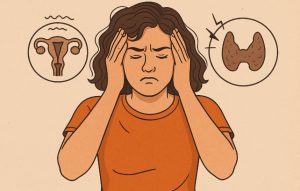
Your body’s hormones play a key role in weight management. Conditions like hypothyroidism, polycystic ovary syndrome (PCOS), and insulin resistance can slow down metabolism, making weight loss more difficult.
Additionally, chronic stress can lead to increased cortisol levels, which promote fat storage especially around the belly.
Some women may also experience weight fluctuations due to hormonal changes related to the menstrual cycle, pregnancy, or menopause.
How to Fix it?
- If you suspect a hormonal issue, consult a doctor for proper diagnosis and treatment.
- Focus on stress management techniques like meditation, exercise, and sleep improvement.
- Avoid crash dieting, as it can further disrupt hormone balance.
7. Lack of Sleep
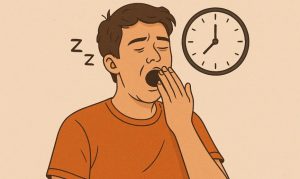
Sleep plays a critical role in weight loss because it regulates hormones that control hunger and metabolism.
When you don’t get enough sleep, your body produces more ghrelin (the hunger hormone) and less leptin (the satiety hormone), leading to increased appetite and cravings for high-calorie foods.
Additionally, poor sleep can lead to fatigue, reducing physical activity and making it harder to stick to a diet and exercise routine.
How to Fix it?
- Aim for 7–9 hours of quality sleep per night.
- Establish a bedtime routine and avoid screens before bed.
- Reduce caffeine intake in the evening and limit alcohol consumption.
8. High Stress Levels
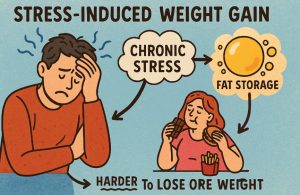
Chronic stress triggers the release of cortisol, a hormone that encourages fat storage particularly around the midsection.
High stress levels can also lead to emotional eating, increased cravings for sugary and high-fat foods, and disruptions in digestion.
Even if you’re maintaining a calorie deficit, stress-induced hormonal changes can make weight loss slower or more challenging.
How to Fix it?
- Practice stress-relief techniques like meditation, yoga, deep breathing, or journaling.
- Engage in physical activity to manage stress effectively.
- Identify emotional eating triggers and develop healthier coping mechanisms.
9. Water Retention
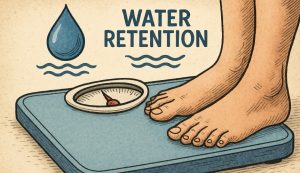
Weight loss doesn’t always show immediately on the scale due to water retention, which can be caused by high sodium intake, hormonal fluctuations, or intense workouts leading to muscle inflammation. While water weight isn’t the same as fat gain, it can make it seem like you’re not losing weight, leading to frustration.
How to Fix it?
- Drink plenty of water to reduce bloating.
- Limit processed and salty foods.
- Track progress with measurements and photos instead of relying solely on the scale.
10. Alcohol Consumption
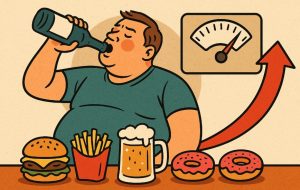
Alcohol not only adds extra calories but also slows down fat metabolism since the body prioritizes breaking down alcohol over burning fat.
Additionally, drinking often leads to poor food choices, late-night snacking, and a lack of portion control, further affecting weight loss progress.
How to Fix it?
- Limit alcohol intake and choose lower-calorie options.
- Drink water between alcoholic beverages to stay hydrated.
- Avoid binge drinking, which can lead to excess calorie consumption.
11. Medication Side Effects
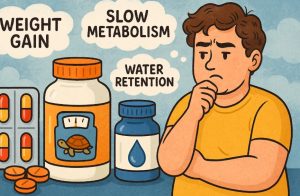
Certain medications, such as antidepressants, steroids, birth control pills, and some diabetes medications, can contribute to weight gain by altering metabolism, increasing appetite, or causing fluid retention. If you’re taking medication, weight loss might be more challenging despite being in a calorie deficit.
How to Fix it?
- If you suspect medication is affecting your weight, talk to your doctor about alternatives.
- Continue focusing on diet and exercise while managing medication-related challenges.
- Never stop medication without consulting a healthcare professional.
12. Muscle Gain
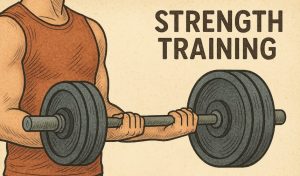
If you are strength training while dieting, you might be building muscle while losing fat. Since muscle weighs more than fat by volume, the scale may not show a decrease even though your body composition is improving.
How to Fix it?
- Track progress through body measurements, progress photos, and how your clothes fit.
- Continue resistance training to preserve lean muscle and support metabolism.
- Don’t rely solely on scale weight to assess progress.
13. Adaptive Metabolism
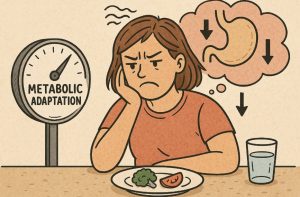
When you consistently eat in a calorie deficit, your body may adapt by slowing down metabolism to conserve energy.
This is a survival mechanism known as metabolic adaptation, where the body becomes more efficient at using fewer calories, making further weight loss more challenging.
Additionally, long-term dieting can lead to reduced non-exercise activity thermogenesis (NEAT), meaning you move less throughout the day without realizing it.
How to Fix it?
- Take periodic diet breaks by slightly increasing calories to reset metabolism.
- Incorporate strength training to maintain muscle mass and support metabolic rate.
- Stay active throughout the day by increasing steps, standing more, or adding small movement breaks.
14. Poor Gut Health
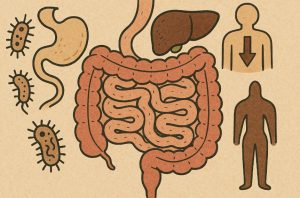
Your gut microbiome plays a crucial role in digestion, metabolism, and overall health. An imbalance in gut bacteria can lead to bloating, slow digestion, and poor nutrient absorption, which can indirectly affect weight loss.
Processed foods, low fiber intake, and excessive sugar consumption can negatively impact gut health, making it harder for your body to process food efficiently.
How to Fix it?
- Increase fiber intake by eating more fruits, vegetables, whole grains, and legumes.
- Consume probiotic-rich foods like yogurt, kefir, kimchi, and sauerkraut to support healthy gut bacteria.
- Reduce processed and high-sugar foods that can disrupt gut flora.
15. Not Being Patient
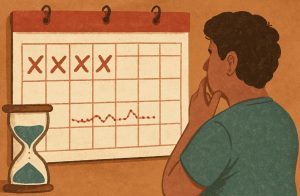
Weight loss is not always linear, and fluctuations are normal. Many people expect quick results and get discouraged if they don’t see immediate progress on the scale.
Water retention, muscle gain, and daily fluctuations can mask fat loss, making it seem like nothing is changing. Additionally, crash dieting or expecting overnight results can lead to frustration and unsustainable habits.
How to Fix it?
- Focus on long-term consistency rather than short-term results.
- Track progress using multiple methods, such as photos, measurements, and clothing fit.
- Understand that weight loss takes time, and small, sustainable changes lead to lasting results.
How to Fix Your Calorie Deficit Issues?
If you’re struggling to lose weight despite being in a calorie deficit, it’s time to reassess your strategy. Small mistakes in tracking and lifestyle choices could be holding you back.
Key Adjustments to Realign Your Deficit:
- Track Calories Accurately: Many people underestimate their intake. Log everything, including sauces, drinks, and snacks, using a reliable app.
- Recalculate Your TDEE: As you lose weight, your energy needs decrease. Adjust your calorie intake accordingly to maintain a deficit.
- Look Beyond the Scale: Track progress through photos, measurements, and how your clothes fit instead of relying solely on weight changes.
- Incorporate Strength Training: Building muscle helps preserve metabolism and prevents muscle loss during fat loss.
- Prioritise Protein: A high-protein diet keeps you fuller for longer and supports muscle maintenance.
- Optimise Sleep & Manage Stress: Poor sleep and chronic stress disrupt hormones, reducing fat-burning efficiency.
By making these small, consistent changes, you can get back on track and start seeing real fat loss progress again.
How Long Should You Stay in a Calorie Deficit for Healthy Weight Loss?
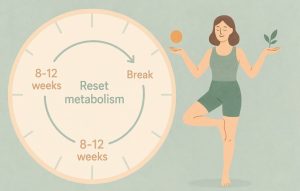
A calorie deficit is essential for weight loss, but staying in one for too long can have adverse effects on both your metabolism and mental wellbeing.
Experts typically recommend remaining in a calorie deficit for 8 to 12 weeks at a time before taking a short maintenance phase or diet break. This approach gives your body a chance to restore hormonal balance, reduce stress, and avoid burnout.
Extended deficits can cause fatigue, increased hunger, and slower metabolism due to adaptive thermogenesis. After a break, if you still have weight to lose, you can begin another cycle. Remember, healthy fat loss is gradual ideally between 0.5 and 1kg per week.
Attempting to rush results with extreme restriction often backfires and leads to weight regain. Giving your body time to adjust allows for better long-term success.
A slow, steady pace not only protects muscle but also makes the process more sustainable and enjoyable.
Can a Calorie Deficit Work Without Exercise?
Yes, it’s absolutely possible to lose weight through a calorie deficit alone, but combining it with exercise produces better results.
Diet is the primary driver of weight loss, but physical activity supports fat burning and helps preserve lean muscle mass. Exercise also enhances mood, boosts insulin sensitivity, and increases your total daily calorie burn.
Without it, your calorie requirements are lower, meaning you’ll need to eat even less to stay in a deficit. Light activity such as walking, yoga, or short home workouts can make a significant difference without feeling overwhelming.
While you can achieve weight loss purely through nutrition, exercise creates a more balanced and flexible lifestyle. It helps you retain strength, mobility, and improves your overall health during the process.
For optimal fat loss and long-term maintenance, aim to combine a modest calorie deficit with regular movement, even if it’s low intensity. This synergy improves both physical and mental results.
When Should You Consider Seeking Professional Help?

If you’ve hit a plateau or suspect an underlying issue, seeking expert advice may be the best step forward.
Despite careful calorie tracking and exercise, some individuals experience unexplained weight gain, which could indicate hidden factors like metabolic adaptations or miscalculations.
Hormonal imbalances can also impact progress. Symptoms such as fatigue, hair loss, irregular periods, or mood swings may suggest thyroid or other endocrine issues. Additionally, some medications, including antidepressants and steroids, can slow metabolism and hinder fat loss.
Other signs that professional help may be needed include:
- Disordered eating habits: Obsessive calorie counting, food guilt, or binge eating can negatively affect both physical and mental health.
- Mental health struggles: Anxiety, depression, or stress may reduce motivation and consistency.
A registered dietitian, GP, or endocrinologist can assess your situation, uncover overlooked factors, and create a tailored plan to help you move forward.
Conclusion
Not losing weight in a calorie deficit can be disheartening, but it’s rarely about willpower. Often, the cause lies in the finer details like tracking accuracy, hormonal balance, or consistency.
Your body is complex, and weight loss is not always a straight path. Plateaus, muscle gain, and water retention are all normal parts of the journey. The key is to stay patient, keep learning, and adjust your approach as needed.
With the right strategies and mindset, you’ll break through the plateau and continue progressing toward your goals. Trust the process and take care of your health along the way.
FAQs
Do you need to eat the same number of calories every day?
No, your calorie intake can vary slightly day to day as long as your weekly average stays within your target. Some prefer calorie cycling for flexibility.
Should you adjust your calorie deficit as you lose weight?
Yes, as you lose weight, your maintenance calories decrease. Recalculating your needs ensures your deficit remains effective.
Is it possible to be in a deficit and still gain weight temporarily?
Yes, factors like water retention, muscle gain, or digestion can cause temporary weight increases. These fluctuations are normal.
How does alcohol impact calorie deficit and fat loss?
Alcohol adds extra calories and disrupts metabolism. It can also increase cravings and reduce inhibition, leading to overeating.
Can low-carb or keto diets improve deficit results?
They can help reduce water weight and appetite temporarily. However, the deficit—not the carb level—is what drives fat loss.
Is reverse dieting a solution for long-term calorie restriction?
Yes, reverse dieting can help restore metabolic function and prevent rebound weight gain after extended dieting periods.
How long does it take to see results from a calorie deficit?
Most people notice changes within 2 to 4 weeks. Progress may appear through measurements, photos, or how clothes fit before showing on the scale.







